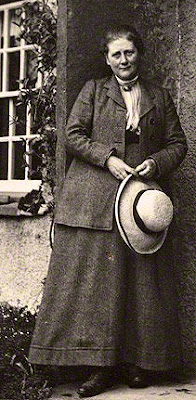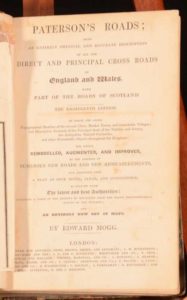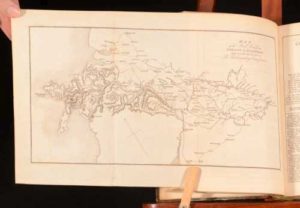From The Horse-World of London by William John Gordon (1893)
Very few horses are allowed to end their days in peace, after long and faithful service, like the Duke of Wellington’s old charger Copenhagen, in the paddocks at Strathfieldsaye. London horses, in particular, rarely die natural deaths. Many of them are sent back into the country in a vain hope that they will ‘come round’; many of them are poleaxed for very shame at their miserable appearance; some of them slip and injure themselves beyond recovery in the streets.
A curious trade is that of the horse-slaughterer, who must not only have a licence, but carry on his operations in accordance with the 26th of George III. and other Acts of Parliament. No horse that enters his yard must come out again alive, or as a horse. The moment it enters those gates it must be disfigured by having its mane cut off so close to the skin as to spoil its value, and though it may be put in a ‘pound’ on the premises, which might better be called a condemned cell or a moribundary, it must not remain there for more than three days.
In Garratt Lane, Wandsworth, is the largest horseslaughtering yard in London. It has existed for about a hundred years. There it stands, practically odourless, by the banks of the winding Wandle, with a wide meadow in front of it and a firework factory next door, the magazine of which is within measurable distance of its boiler-house. One fine morning—it was really a beautiful morning—we found our way down the lane, along the field, armed with Mr. Boss’s permit, to be initiated by Mr. Milestone into the mysteries of a horse’s departure from the London world.
The last scene does not take long. In two seconds a horse is killed; in a little over half an hour his hide is in a heap of dozens, his feet are in another heap, his bones are boiling for oil, his flesh is cooking for cat’s meat. Maneless he stands; a shade is put over his eyes; a swing of the axe, and, with just one tremor, he falls heavy and dead on the flags of a spacious kitchen, which has a line of coppers and boilers steaming against two of its walls.
In a few minutes his feet are hooked up to crossbeams above, and two men pounce upon him to flay him; for the sooner he is ready the quicker he cooks. Slash, slash, go the knives, and the hide is peeled off about as easily as a tablecloth; and so clean and uninjured is the body that it looks like the muscle model we see in the books and in the plaster casts at the corn-chandler’s. Then, with full knowledge gained by almost life-long practice, for the trade is hereditary, the meat is slit off with razor-like knives, and the bones are left white and clean and yet unscraped, even the neck vertebrae being cleared in a few strokes—one of the quickest things in carving imaginable.
If there is any malformation the sweep of the knife is stayed for a moment; that is all. The same sort of thing has always been seen before, and there is no hesitation about the way to deal with it. No matter of what breed or age or condition the horse may be, his ‘boning’ is not delayed by peculiarities. And horses of all sorts, some of them sound and in the prime of life, here meet their doom—the favourite horse killed at his master’s death, to save him from falling into cruel hands: the runaway horse that has injured a daughter; the brute that has begun to kick and bite; the mildest mannered mare that has, perhaps, merely taken a wrong turn and made her mistress angry—all come here to die with the hundreds of the injured and the old. Taking them all round, the old and young and sound and ailing, they average out in the men’s opinion at rather over eleven years when they here meet their doom.
Soon the bare skeleton remains to be broken up and in baskets go aloft to be shot into a huge digester, where it is made to yield about a quarter hundredweight of oil. Following the oil, we see it cleared of its stearin, pressed out between huge sheets of paper, and remaining in white cakes like gauffres ready for the candle-makers; and we see the oil flowing limpid and clear into the tank above, from which it is barrelled off to be used eventually for lubricating and leather-dressing purposes.
Returning to the bones, we find them out on the flags, clean and free from grease, ready to be thrown into a mill, from which they emerge like granite from a stonebreaker, along a sloping cylindrical screen, which sorts the fragments into sizes varying up to half an inch. And stretching away from us are sacks, full to the brim with bones, all in rows like flour-sacks at a miller’s, all ready to go off to the manure merchants. And still further following the bones, we find some of them ground to powder and mixed with sulphuric acid to leave the premises as another form of fertiliser.
Having seen the bones off the premises, we follow the feet, of which we find a huge pile, not a trace of which will be left before the day is out. The skin and hoofs will go to the glue-makers and blue-makers; the bones will go to the button-makers; the old shoes will go to the farrier’s and be used over and over again, welded in the fire and hammered on the streets, so that all that is lost of a horseshoe is what rusts or is rubbed off in powder..-.
With a glance at the tails and manes, which will soon be lost in sofas, chairs, or fishing-lines, we reach the heap of hides, which will probably find its way to Germany to be made into the leather guards on cavalry trousers, or, maybe, stay in this country for carriage roofs and whip-lashes. This distribution of the dead horse may seem to be an odoriferous business, but the odours are reduced to a minimum by an elaborate ventilating system which draws off all the fumes and emanations into a line of pipes, and passes them over a wide furnace to be burnt, so that none of them reach the outer air.
But now for the ‘meat,’ which, cut into such joints as the trade require, has been boiling in the coppers and is now done to a turn, with just the central tint of redness and rawness that suits the harmless, necessary cat, while the ‘tripe ‘ is doing white in another copper to suit the palate of the less fastidious dog.
Harrison Barber, Limited, the successors of the once great Jack Atcheler, dead some thirty years since, kill 26,000 London horses a year. All night and all day the work goes on, this slaying and flaying, and boning and boiling down, and this cooking for feline food. Go to any of their depots between five and six o’clock in the morning, and you will find a long string of the pony traps and hand-carts, barrows and perambulators, used in the wholesale and retail cat’s-meat trade. The horse on an average yields 2 cwt. 3 qrs. of meat; 26,000 horses a year means 500 a week, which in its turn means 70 tons
of meat per week to feed the dogs and cats of London.
This is not all the ‘meat’ that is sold, nor all the London horses that are killed, for the horseflesh trade is large enough to employ thirty wholesale salesmen; but taking even this ten tons a day, we shall find it means 134,400 meals, inasmuch as a pound of meat cuts up into half a dozen ha’porths—the skewers being given in, though it takes half a ton of them to fix up a day’s consumption. Here is another item for the forest conservation people! 182 tons of deal used a year in skewering up the horses made into meat by Harrison Barber!
Sometimes there is a glut of the aged and the maimed, and the supply of meat exceeds the demand. To cope with this difficulty a complete refrigerating plant is at work at Wandsworth, cooling the larders, in which two hundred and fifty horses can be stored; which larders are not only a revelation, but a welcome surprise.
A door is opened and shut, and we stand in the darkness between two doors in an air lock; the inner door is opened and a shiver of cold runs through us as a match is struck and a candle lighted; and there in front is what looks like a deep cave in an arctic drift. Around us are piles of meat, all hard as stone and glittering with ice crystals; overhead, and at the back of all, the beams and walls are thick with pure clinging snow; and from above a few flakes fall as the door closes on the silvery cloak that wraps the last to leave the Horse World of London.















